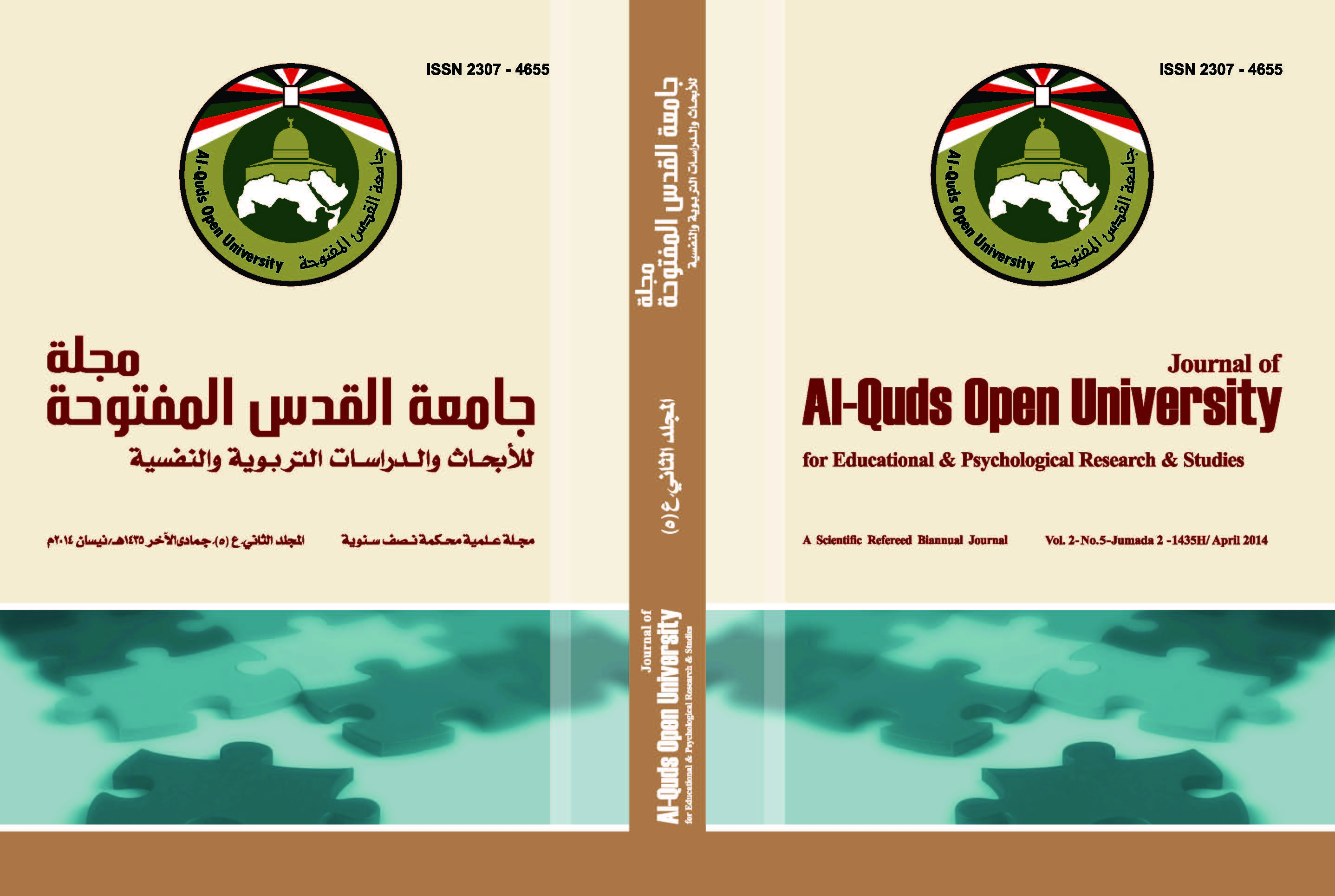Using Games to Promote Students’ Motivation towards Learning English
Keywords:
Games, students’ attitudes, learning English, teachers’ PerspectivesAbstract
This study aims to find out the role of games in promoting students’
attitudes towards learning English from the teachers’ perspective. The
researchers used a 30-item questionnaire which was given to 20 male and
female UNARWA teachers who teach English for the Palestinian young
children aged 6-10 years old (grades 1-4) in the schools of Jenin Refugee
Camp, Ya’bad, Araba, and Rommana where the whole authority belongs to
United Nations Educational, Relief and Work Agency (UNERWA) during the
second semester of the academic year 2010-2011.
The researchers used means, t- test and one way ANOVA to analyze
the collected data. The researchers found out that most of the teachers of
English in the above-mentioned schools agree that games have influence
on the students’ attitudes towards learning English and that the use of them
in the class is not just for fun but it also serves many educational purposes
such as creative thinking, critical thinking, problem solving, role playing and
collaborative work among others.
In the light of these findings, the researchers suggested using games as
energizers and short warm-up activities not only to sustain attractiveness to
learning, but also to bring real life to learning
Downloads
Published
How to Cite
Issue
Section
License
- The editorial board confirms its commitment to the intellectual property rights
- Researchers also have to commit to the intellectual property rights.
- The research copyrights and publication are owned by the Journal once the researcher is notified about the approval of the paper. The scientific materials published or approved for publishing in the Journal should not be republished unless a written acknowledgment is obtained by the Deanship of Scientific Research.
- Research papers should not be published or republished unless a written acknowledgement is obtained from the Deanship of Scientific Research.
- The researcher has the right to accredit the research to himself, and to place his name on all the copies, editions and volumes published.
- The author has the right to request the accreditation of the published papers to himself.







2.png)






_2.png)

